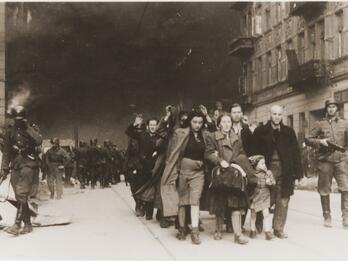Universitas Vitae
Stefan Zweig
1942
[ . . . ] I have always felt it as a particular honor that a man of such outstanding importance as Theodor Herzl was the first to champion me publicly from his exposed and therefore responsible position, and it was difficult for me to determine—ungratefully, it might seem—not to join his Zionist movement actively and in the responsible capacity…
Creator Bio
Stefan Zweig
The biographer, dramatist, poet, essayist, and novelist Stefan Zweig grew up in Vienna in luxury and security in a wealthy, nonobservant family in the last days of the Habsburg Empire. He began writing feuilletons and poems while still a teenager, publishing his first book of poetry in 1901 and completing his doctorate at University of Vienna in 1904. With the rise of Hitler, Zweig moved to England in 1934 and then to the United States in 1940, but before the year was up, he left for Brazil, where, depressed by the collapse of European civilization, he committed suicide in 1942. His works were translated into many languages, and in the interwar years he was one of the most famous writers in the world. He was known particularly for his biographies of historical and literary figures and for his novellas. His much-read autobiography The World of Yesterday (1942) is both praised (as elegiac) and damned (as naïve). Always identified and identifying as Jewish, Zweig’s writings—with the notable exceptions of Mendel the Bibliophile (1929) and The Buried Candelabrum (1936)—rarely address Jewish themes; even his popular grand “biblical” verse drama Jeremiah (1917) serves more as a pacifist allegory than an assertion of its author’s Jewishness.
Related Guide
Holocaust and Post-Holocaust Life-Writing and Reportage
Life writing and reportage captured individual Jewish experiences in a period of conflict and uncertainty.
Related Guide
The Holocaust: Years of Catastrophe (1939–1945)
Jewish writing in Nazi-occupied areas documented ghetto life, moral questions, and Jewish identity, while writers in free zones grappled with the unfolding tragedy.
You may also like
In These Nightmarish Days
Warsaw, Aryan Side
The Lithuanian Yeshivas



